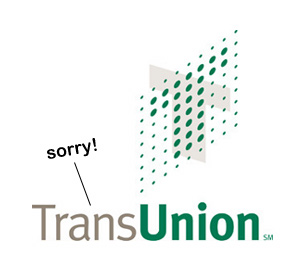We’ve devoted a fair amount of time to trying to find ways to beat companies like Webloyalty, which market themselves via post-transaction popups on legit Web sites like Fandango and Orbitz, and suck you in with promises of savings, savings, savings, but really just deliver hard-to-cancel recurring monthly charges. The best solution we’ve found: Block pop-ups, boycott merchants that work with these losers, and immediately close any window that starts talking to us about all the great deals we’re about to get. Senator John D. Rockefeller IV has another idea, and it’s one that we like: Investigate the companies and make them hand over the goods on their business practices.
justice

Continuing Adventures Of The Stupid Shipping Gang
Today’s “Toothpaste For Dinner” Web comic features a visit from the Stupid Shipping Gang. A bigger version of the comic, and more adventures of the Stupid Shipping Gang, inside.

Auto Warranty Robocallers Call Indiana Attorney General At Home
Protip for telemarkers: If you’re going to engage in random robodialing to unlisted cell phones, pray very very hard that you do not dial the attorney general of a state in which you plan to continue doing business.
../../../..//2009/05/05/the-house-subcommittee-on-commercial/
The House Subcommittee on Commercial and Administrative Law is currently holding a hearing on forced arbitration and credit cards, appropriately titled “Federal Arbitration Act: Is the Credit Card Industry Using It To Quash Legal Claims?” Our friends at Public Citizen will be testifying. You can view (or at least listen to) the Real Player stream here.

"We Build In Middle Class Neighborhoods Because You Can't Afford To Fight Us"
Meet Michelle. We met Michelle at Arbitration Fairness Day and she told us about being forced into arbitration when she tried to get her poorly constructed home repaired. Now she’d like to share her story with you.

Forced Arbitration: You Lose, Now Pay For Our Lunch
Mandatory binding arbitration, which corporations use to dodge accountability for their discrimination, negligence, or harassment, is a caricature of justice that offers no protection to consumers or employees. It’s also terrible for small business owners, as one couple found out.

Forced Arbitration: As Fair As A Sucker Punch
We at Consumerist really hate mandatory binding arbitration, the faux-legal sucker punch that companies deliver when they screw up and you try to sue, and so should you. We’ve talked about its evils a lot, but no one can describe this legal abomination as well as the victims themselves, so this week we’ll let them speak.
../../../..//2009/03/11/missouris-attorney-general-has-won/
Missouri’s Attorney General has won a $300,000 judgment against a telemarketer that violated the state’s do-not-call list. It is the third-largest award so far.

Mandatory Binding Arbitration Isn't Just Bad For Consumers, It's Bad For Small Businesses
Mother Jones has an excellent writeup of Deborah Williams and Richard Welshans, the Maryland couple whose horrific experience with franchising a Coffee Beanery we’ve covered before. Inside, MoJo breaks down the arbitration award to show just how much more expensive arbitration is than litigation.

The Arbitration Fairness Act Is In The House
The Arbitration Fairness Act, which will ban binding mandatory arbitration clauses from consumer, employment, and franchise contracts, was reintroduced in the House yesterday.

Mandatory Binding Arbitration: The Worst Choose Your Own Adventure Ever
Mandatory binding arbitration agreements are bad for consumers for so many reasons that, unless you’re the victim of one, it’s hard to keep track of the various ways you can be screwed. So we’ve come up with this helpful illustration: a choose-your-own-adventure-styled trip through the arbitration process.
Old Man Sues Ripoff Dealership, Wins $41,679+
Justice has finally been served to the senior citizen who was not only ripped off on his trade-in vehicle (which is, frankly, to be expected), the dealership also got him to hand over his ATM card and just straight up stole $2000 from his bank account.

Wachovia To Pay $144 Million For Bilking "Gullible" Seniors
Wachovia will pay $144 million for helping telemarketers prey upon the elderly. The Office of the Comptroller of the Currency spanked the morally bankrupt institution with one of the largest fines ever levied—but before seeing a penny of settlement money, seniors will need to fill out detailed claim forms and navigate a complex bureaucracy.
Tax Runner Wesley Snipes Sentenced To Three Years In The Slammer
Gather round, tax kooks, and listen to the tale of Wesley Snipes. He’s the guy who didn’t pay his taxes while raking in millions, and then tried to collect $7.4 million in tax refunds. Now he’s going to jail for three years thanks to a federal District Judge who doesn’t care much for tax protesters and their zany theories.
After a multimillion-dollar verdict, attorneys get fee award, too
To add (just) insult to (just) injury, a Florida judge awarded $518,301 to Angela Williams’s attorneys (PDF link). Ms. Williams recently won almost $3 million in a lawsuit against Equifax for Equifax’s refusal to fix her credit report after her identity was stolen.

Consumers Finally Allowed To Speak Out Against Abusive Credit Card Practices
Consumers were finally allowed this week to testify in favor of a proposed Credit Cardholders’ Bill of Rights without being forced to sign waivers allowing their creditors to release private financial records to the public. The three cardholders who testified lambasted their credit card companies for penalizing them even though they abided by their cardholder agreements.

Leukemia Survivor Settles ID Theft Lawsuit With TransUnion; Five More Companies To Go
When Eric Drew was in the hospital being treated for leukemia five years ago, a lab technician stole his personal information and began opening up credit card accounts in his name.

"Free iPod" Claims Cost Spammer $2.9 Million
The FTC slammed nuisance advertiser ValueClick with a record-breaking $2.9 million fine for littering the internet with deceptive ads for free iPods, PS3s, and plasma TVs. Instead of providing freebies, ValueClick tricked people into signing up for useless services and then failed to safeguard their personal information.


